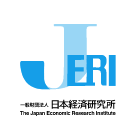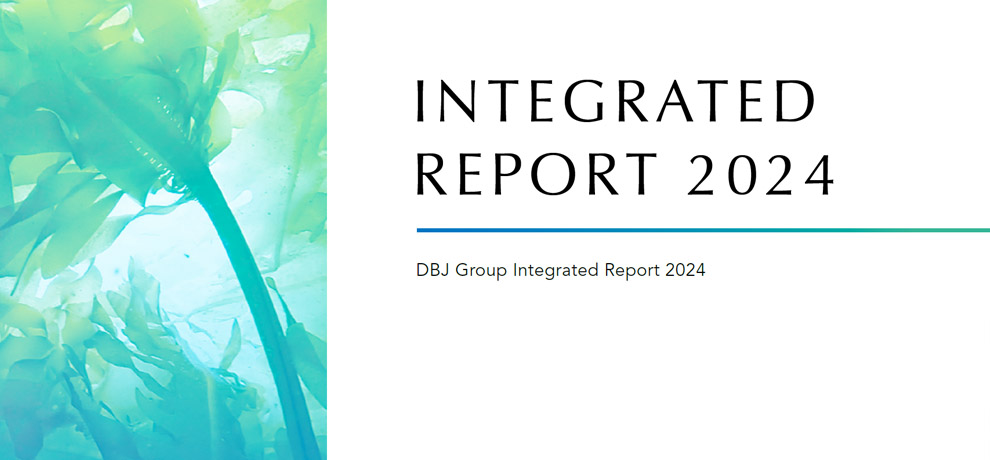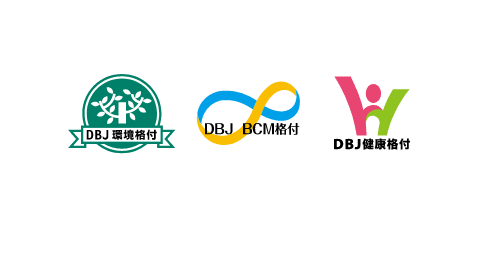Responsible Investment and Financing Efforts
Acceptance of the Principles for Responsible Institutional Investors—Japan’s Stewardship Code
In August 2014, DBJ declared its acceptance of the Principles for Responsible Institutional Investors—namely, Japan's Stewardship Code (hereinafter the “Code”).
In this Code, “stewardship responsibilities” refers to the responsibilities of institutional investors to enhance the medium- to long-term investment returns of their clients and beneficiaries by improving and fostering the corporate value and sustainable growth of investee companies through constructive engagement, or purposeful dialogue, based on in-depth knowledge of the companies and their business environment.
DBJ accepts this Code, as it believes the spirit of this Code has a high affinity with the investment operations DBJ has been conducting thus far. From the perspective of creating sustainable financial and capital markets in collaboration with diverse financial players through the provision of good-quality risk money and knowledge, DBJ endorses the intent of this Code, which stipulates various principles believed to be useful in having institutional investors adequately fulfill their stewardship responsibility.
Reflecting the revisions to this Code made on May 29, 2017, and March 24, 2020, we make the following declarations on public disclosure based on each principle.
Principle 1: Institutional investors should have a clear policy on how they fulfill their stewardship responsibilities, and publicly disclose it.
In accordance with its corporate philosophy—“Design the Future with Financial Expertise: Continue to expand financial frontiers; Provide the best solutions for customers and society; Pursue sustainable development for Japan and the world”— DBJ aims to contribute to the fortification of the competitiveness of Japan’s industries and the growth of regions through the supply of good-quality risk money and the creation and provision of proprietary knowledge. Also, in order to provide the best solutions for customers and society and pursue sustainable development for Japan and the world based on its corporate philosophy, DBJ enacted its policy on sustainability in 2017 and takes advantage of its unique business model that integrates investments, loans, and other business activities so as to realize economic and social value. Taking these into account, in addition to realizing the selection and focus of its business operations, and its growth strategies, DBJ looks to contribute to the realization of sustainable development for Japan and the world by sharing the results of growth with its investee companies, its clients, through equity investment that takes into account the growing significance of equities amid rising requests to deal with corporate governance.
DBJ states in its policy on sustainability that it works fairly and reliably to provide solutions required to create a sustainable society by identifying material sustainability issues in its relevant fields based on trends in government policy as well as legislation and norms regarding environmental, social, and governance (ESG) criteria in Japan and throughout the world and incorporating a recognition of the need for a sustainable society into our investing, lending, asset management, and other business activities. When selecting investee companies, DBJ is focusing on their social responsibility, as well as their feasibility and economy. At the time of executing an investment, we share our long-term strategies with investee companies while taking into account the intention of the management team after gaining an in-depth understanding of the investee company and its business environments. Even after implementing the investment, we leverage DBJ’s networks and strengths in information, industry research, and financing technologies to provide total financing solutions that address the issues clients face. While maintaining dialogue with investee companies, we aim to realize long-term development and the long-term maximization of their corporate value.
DBJ secures capital from investors to carry out equity investment operations that address the asset management needs of clients. It aims to fulfill its stewardship responsibilities by adequately distributing returns from this management to these investors.
Principle 2: Institutional investors should have a clear policy on how they manage conflicts of interest in fulfilling their stewardship responsibilities, and publicly disclose it.
DBJ aims to leverage its proprietary integrated investment and financing solutions to supply risk money, and its group companies are conducting investments in funds by taking on asset management from investors with various asset management needs. In light of this, we take into account the status of various profits, identifying potential conflict within the company or within our corporate group due to the wide range of operations we handle, in order to prevent any unjust harm to client profits. We properly manage conflicts of interest in accordance with the Basic Policy on the Management of Conflicts of Interest, which we have continuously been disclosing, while fulfilling our accountability to clients by addressing their individual conditions.
When carrying out equity investment operations using capital from investors to comply with their asset management needs, DBJ aims to implement required management, including providing preliminary explanations to investors and receiving their consent, so as to eliminate the possibility of a conflict of interest between the investment and the financing operations that DBJ carries out using its own capital.
Principle 3: Institutional investors should monitor investee companies so that they can appropriately fulfill their stewardship responsibilities with an orientation towards the sustainable growth of the companies.
DBJ, recognizing the need for a sustainable society, has consistently focused on accurately and continually grasping the conditions of each investee company through direct dialogue, and will continue to do so by monitoring those companies’ respective business environments, their status of growth and financial strategies, and their Corporate Governance, as well as by identifying all fathomable business opportunities and risks that are possible or likely to arise.
Principle 4: Institutional investors should seek to arrive at an understanding in common with investee companies and work to solve problems through constructive engagement with investee companies.
DBJ, recognizing the need for a sustainable society, will continue its policy of engaging in dialogue with investee companies in order to disseminate knowledge about the business environment and point out issues that need to be resolved. In addition, we leverage our proprietary networks and skills, including information, research, and financial technology capabilities, to tailor total solutions to specific investee companies’ needs. While carrying out dialogue with investee companies, DBJ undertakes measures to realize long-term growth and the long-term maximization of corporate value. That said, DBJ will jointly implement with companies targeted for investment, measures that will improve those companies’ corporate value. This collaboration should make us privy to important facts that are yet undisclosed by the target company. In such cases, we will appropriately manage this information in line with internal regulations.
Principle 5: Institutional investors should have a clear policy on voting and disclosure of voting activity. The policy on voting should not be comprised only of a mechanical checklist; it should be designed to contribute to the sustainable growth of investee companies.
In its equity investment operations, DBJ has been taking sufficient time carrying out dialogue with each investee company in order to grasp their respective conditions. Rather than following a rigid set of established standards, we carry out considerations for exercising voting rights based on the conditions of each individual company. We exercise voting rights based on what we believe to be appropriate in order to realize an investee company’s long-term growth and the long-term maximization of its corporate value. Going forward, we will employ the same approach, including when utilizing capital from investors to conduct equity investment operations. Regarding the results of exercising voting rights, at present the majority of investment targets are unlisted companies. Taking into account factors such as the potential to hinder management of investee companies from the perspective of information management, it is our policy not to disclose the results of exercising voting rights for individual investee companies and for individual resolutions. In addition, the number of investments is limited. Consequently, for the same reason, we refrain from disclosing the sorted and tabulated data for each major type of resolution.
Principle 6: Institutional investors in principle should report periodically on how they fulfill their stewardship responsibilities, including their voting responsibilities, to their clients and beneficiaries.
DBJ regularly reports on the conditions of investee companies and its involvement in investee companies, including the exercise of voting rights, to investors from whom we have received capital to conduct equity investment operations. Taking into account the standpoint of information management for investee companies, the report is not disclosed on our webpage or other media but is individually reported to each investor.
Principle 7: To contribute positively to the sustainable growth of investee companies, institutional investors should develop skills and resources needed to appropriately engage with the companies and to make proper judgments in fulfilling their stewardship activities based on in-depth knowledge of the investee companies and their business environment and consideration of sustainability consistent with their investment management strategies.
DBJ, recognizing the need for a sustainable society, continues to embark on new measures to deepen its understanding of investee companies and their businesses in order to improve the quality of solutions that those companies can implement. The goal is to realize an investee company’s long-term growth and the long-term maximization of its corporate value. Going forward, we will continue to further strengthen our equity investment operations to properly fulfill our stewardship responsibilities.
- Sustainability
- Sustainability News
- Message from the President
- Sustainability Management System
- Policy on Sustainability
- DBJ Group Human Rights Policy
- Value Creation Process
- Priority Areas for the Achievement of Vision 2030
- Resolving Social Issues and Creating Value Through Our Core Businesses
- Fundamental Activities
- Collaboration with Stakeholders






























